Is Vitaminwater Actually Good for You? A Dietitian’s Honest Review
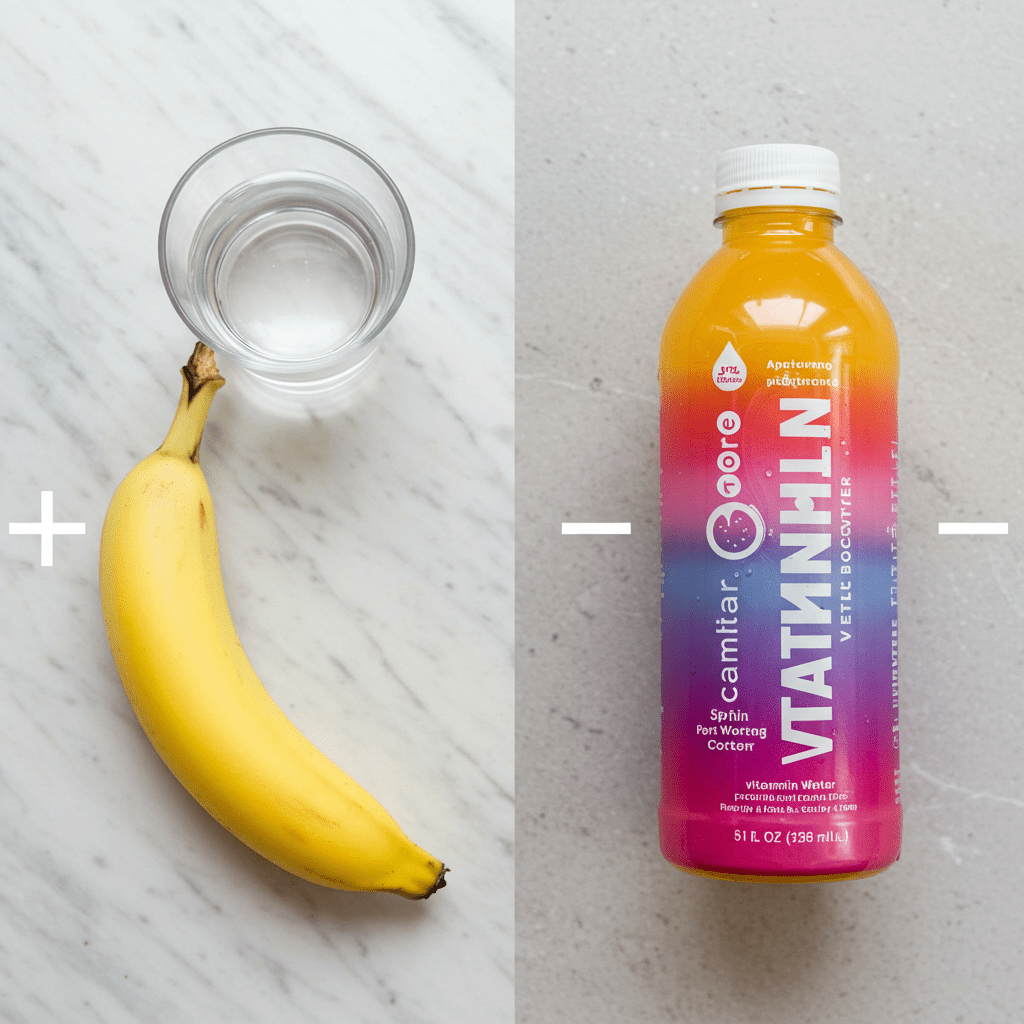
In the crowded beverage aisle, Vitaminwater stands out. It looks like water, but better—or so the marketing suggests.
With vibrant colors and names that promise energy, focus, and defense, it’s positioned as the perfect way to hydrate while getting a nutrient boost. But as a Registered Dietitian, I always advise looking past the label’s promises and into the nutrition facts.
Is Vitaminwater actually good for you, or is it just another sugary drink in disguise? Let’s dive into the science and separate fact from fiction.
What’s Actually Inside a Bottle of Vitaminwater?

To understand any food or drink, we have to look at its ingredients. Vitaminwater is essentially water that has been fortified with vitamins and minerals, sweetened with sugar, and colored with natural flavors.
Let’s take a look at a popular flavor, ‘XXX’ (Acai-Blueberry-Pomegranate). A standard 20 oz bottle contains water, crystalline fructose (a type of sugar), cane sugar, and a host of vitamins like C, B3, B5, B6, and B12.
While the vitamins seem impressive, the first ingredients after water are two forms of sugar. This is our first major clue that this drink might be more about sweetness than wellness.
Let’s Talk About the Sugar Content
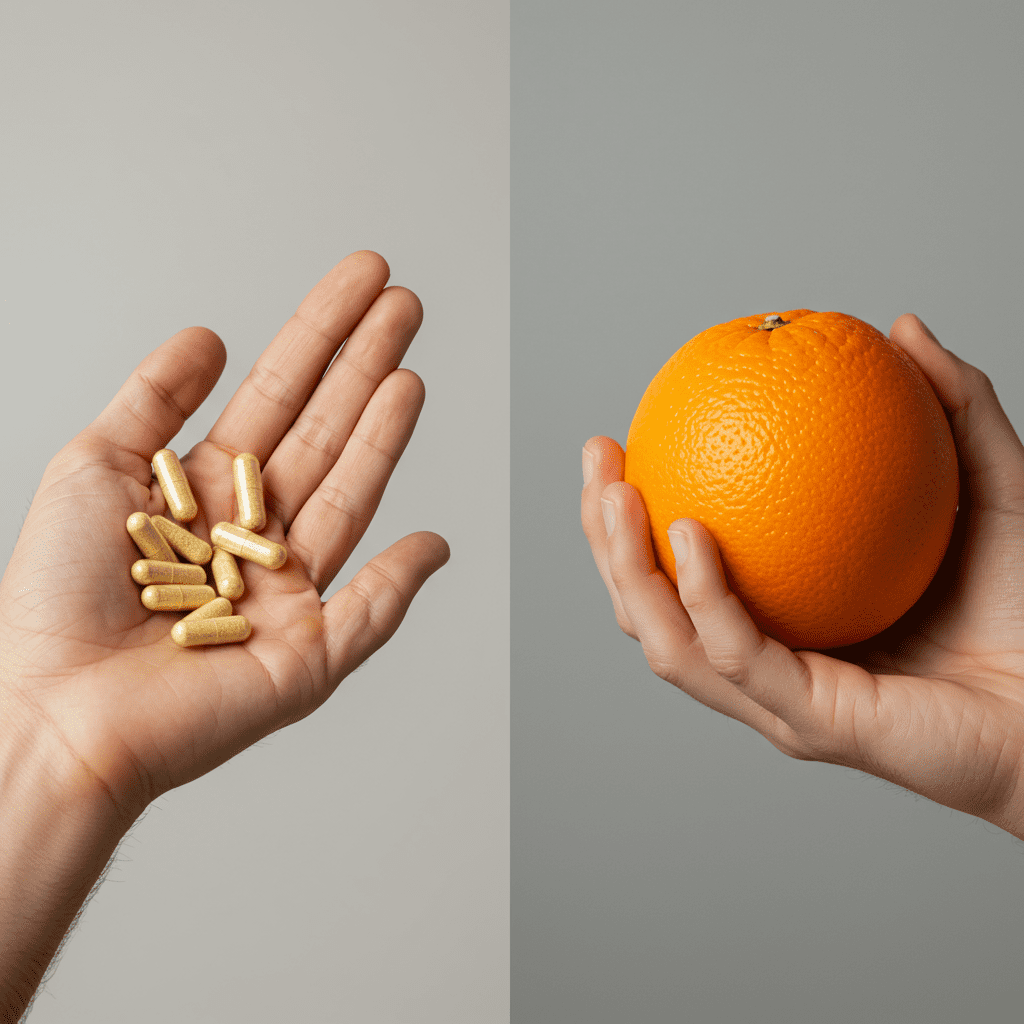
Here’s the part that needs the most attention. That same 20 oz bottle of ‘XXX’ flavor contains 27 grams of added sugar.
According to the American Heart Association (AHA), men should consume no more than 36 grams of added sugar per day, and women no more than 25 grams. This means one bottle of Vitaminwater can meet or exceed a woman’s entire daily recommended limit.
Research from Harvard’s School of Public Health consistently shows that regular consumption of sugary drinks is linked to weight gain, type 2 diabetes, heart disease, and other chronic conditions. While it may have half the sugar of a traditional soda, it’s far from a low-sugar beverage. Reducing your intake of sugary drinks is a great first step, and finding healthy ways to satisfy fast food cravings can help build sustainable habits.
It’s more accurate to view it as a diluted soft drink.
Are the Added Vitamins Really Helping You?
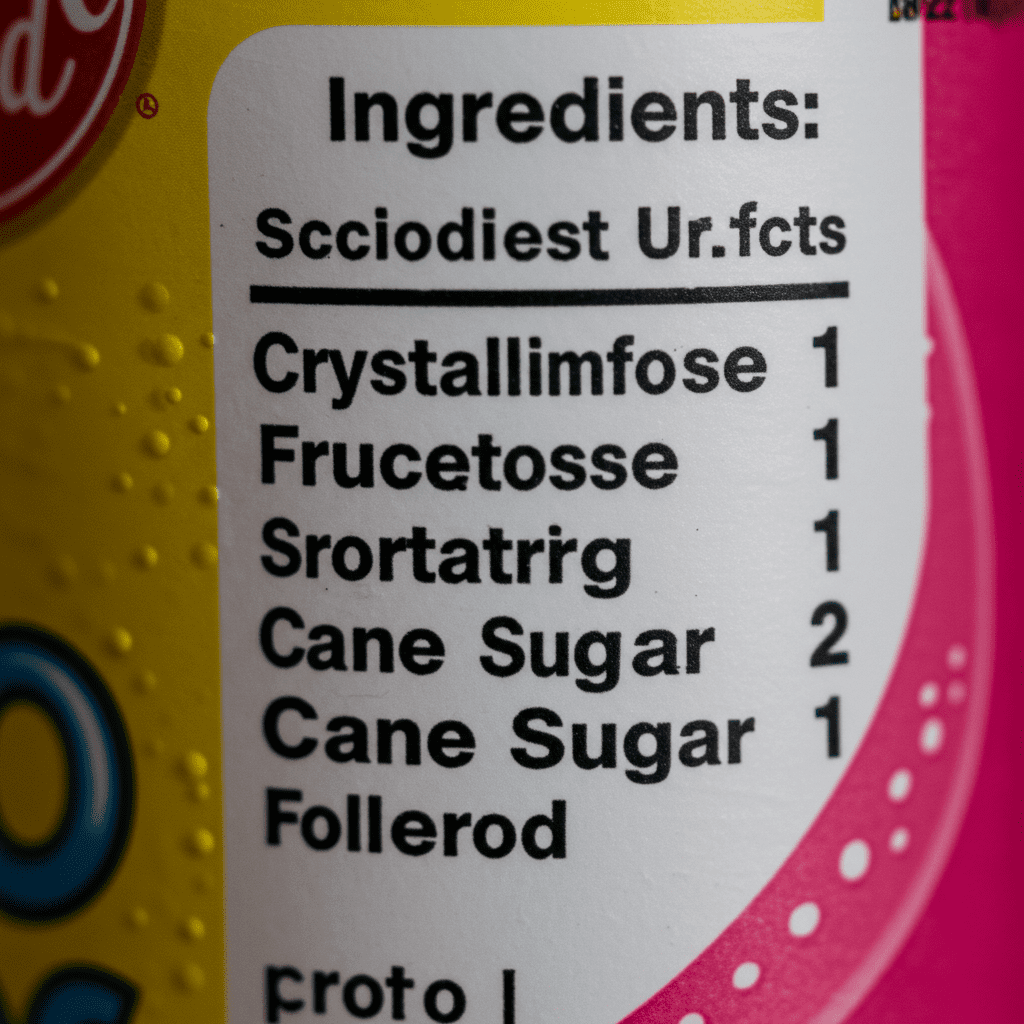
The main selling point of Vitaminwater is, of course, the vitamins. The drink is fortified heavily with water-soluble vitamins, particularly B vitamins and Vitamin C.
While these nutrients are essential for energy and immune function, most people in developed countries are not deficient in them. When you consume more water-soluble vitamins than your body needs, it doesn’t store them for later.
Instead, your kidneys filter out the excess, and you simply excrete them. You’re paying for vitamins that your body likely doesn’t need and won’t use.
Getting your vitamins from whole food sources is a far better approach. As health experts from Harvard emphasize, nutrients from foods like an orange for Vitamin C or leafy greens for B vitamins come packaged with fiber and phytonutrients that aid absorption and provide other benefits.
Is Vitaminwater Zero a Healthier Choice?
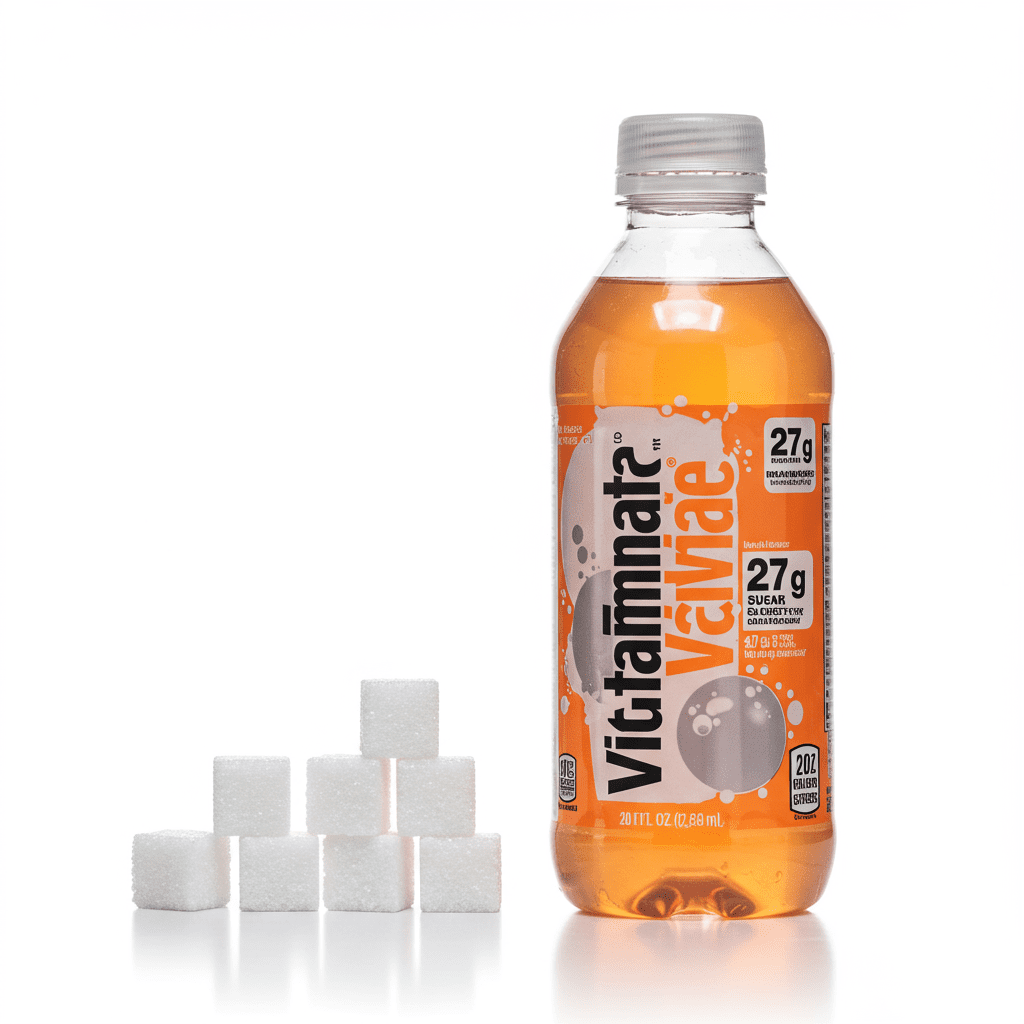
To its credit, the brand offers Vitaminwater Zero, a version with zero sugar and zero calories. This option is sweetened with non-nutritive sweeteners like stevia leaf extract and erythritol.
From a sugar and calorie perspective, this is undoubtedly a better choice than the original. Stevia and erythritol are generally recognized as safe and don’t spike blood sugar levels, making them a suitable alternative for people with diabetes or those managing their weight.
However, it’s still a processed beverage. Some people find that frequent consumption of highly sweet products, even zero-calorie ones, can heighten their preference for sweet tastes, potentially making naturally sweet foods like fruit seem less appealing.
Does It Work as a Sports Drink?
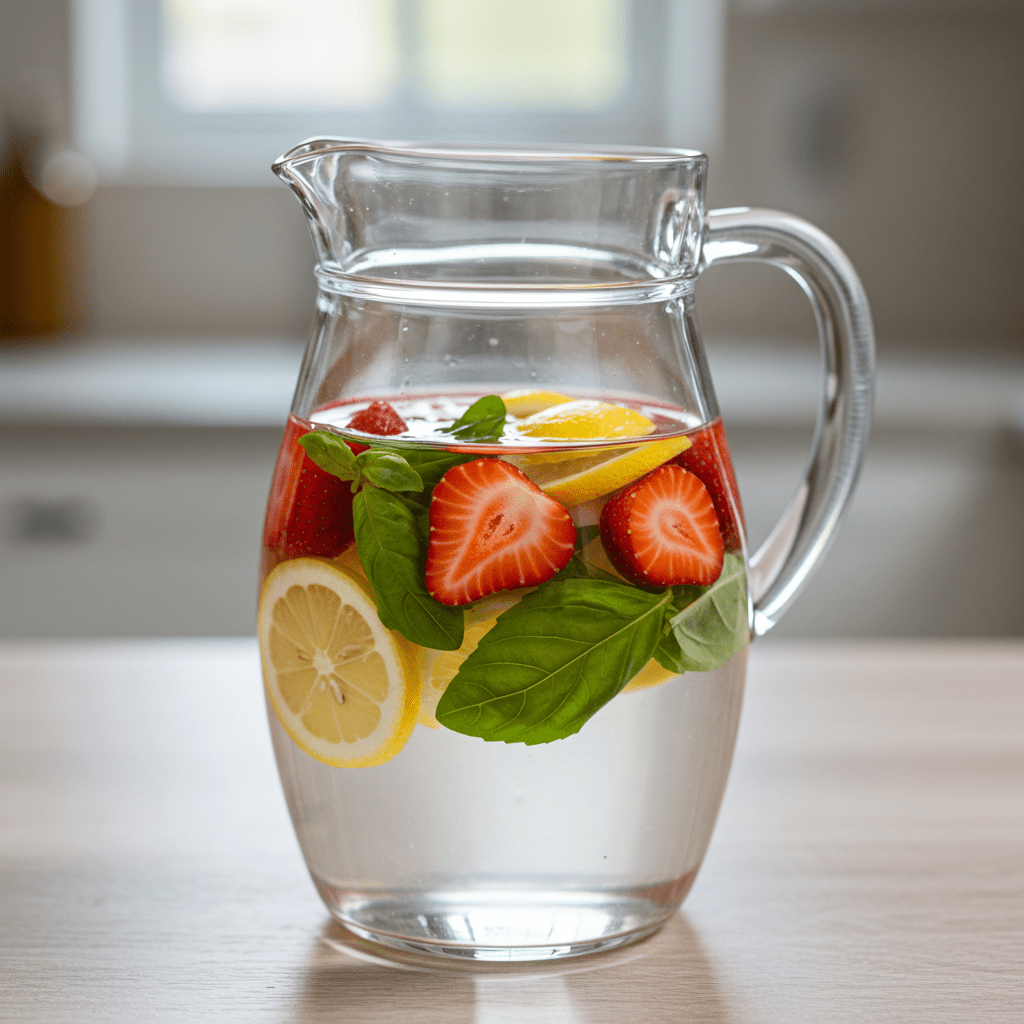
Some Vitaminwater flavors contain electrolytes like potassium and magnesium, leading people to believe they are good for post-workout recovery. While electrolytes are crucial for rehydration after intense, sweaty exercise, the amount in Vitaminwater is minimal.
A bottle might contain around 30-40 mg of potassium, whereas a dedicated sports drink has significantly more to effectively replenish what’s lost through sweat. For most workouts under 60 minutes, plain water is sufficient for hydration.
For longer or more intense sessions, you’d need a beverage specifically formulated for athletic recovery. Vitaminwater simply doesn’t fit that bill.
Can It Help You Stay Hydrated?
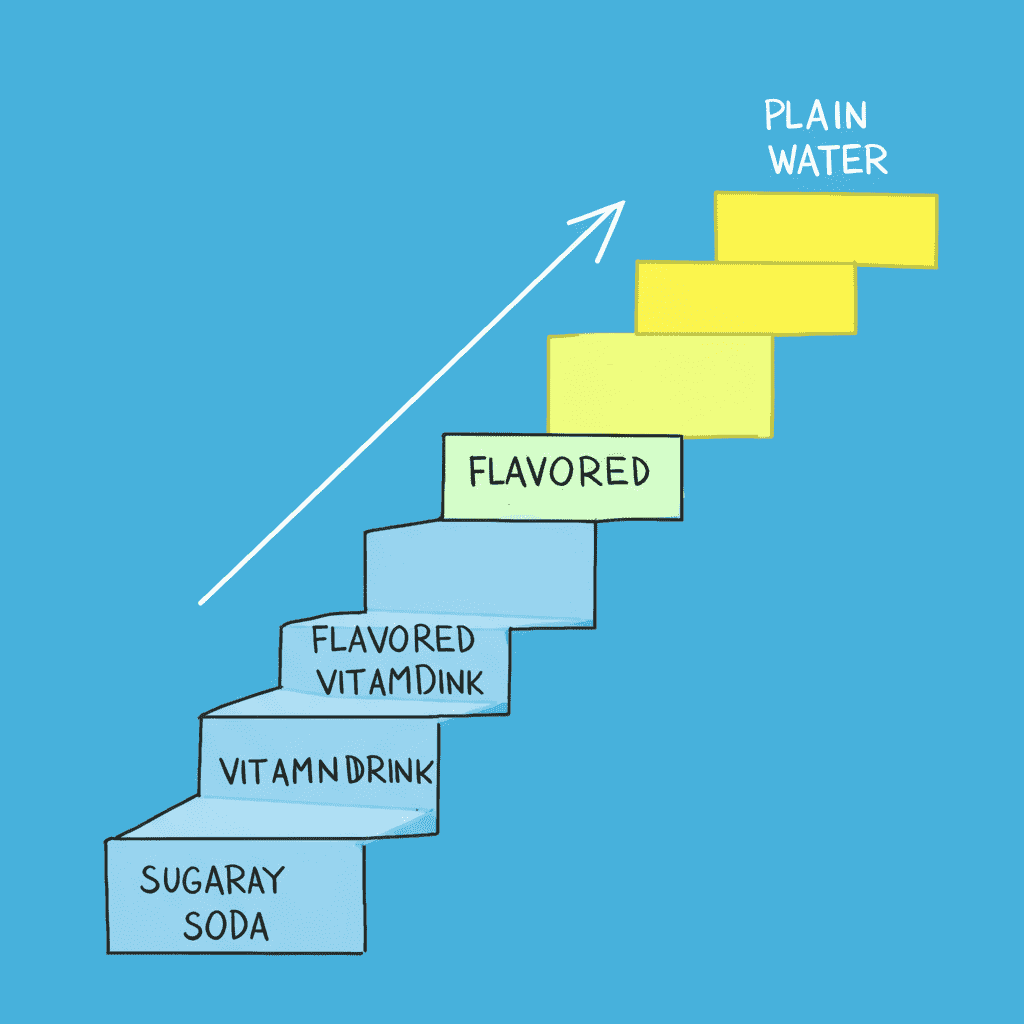
The most basic benefit of Vitaminwater is that it’s a fluid, and it can help you stay hydrated. For individuals who genuinely dislike the taste of plain water and struggle to drink enough, a flavored beverage can be a useful tool.
If the choice is between a Vitaminwater Zero and chronic mild dehydration, the Vitaminwater Zero is the better option. However, it’s important to see it as a stepping stone toward enjoying less intensely flavored and unsweetened beverages, rather than a final health destination.
Hydration is key, but the source matters.
Healthier Ways to Hydrate and Get Nutrients
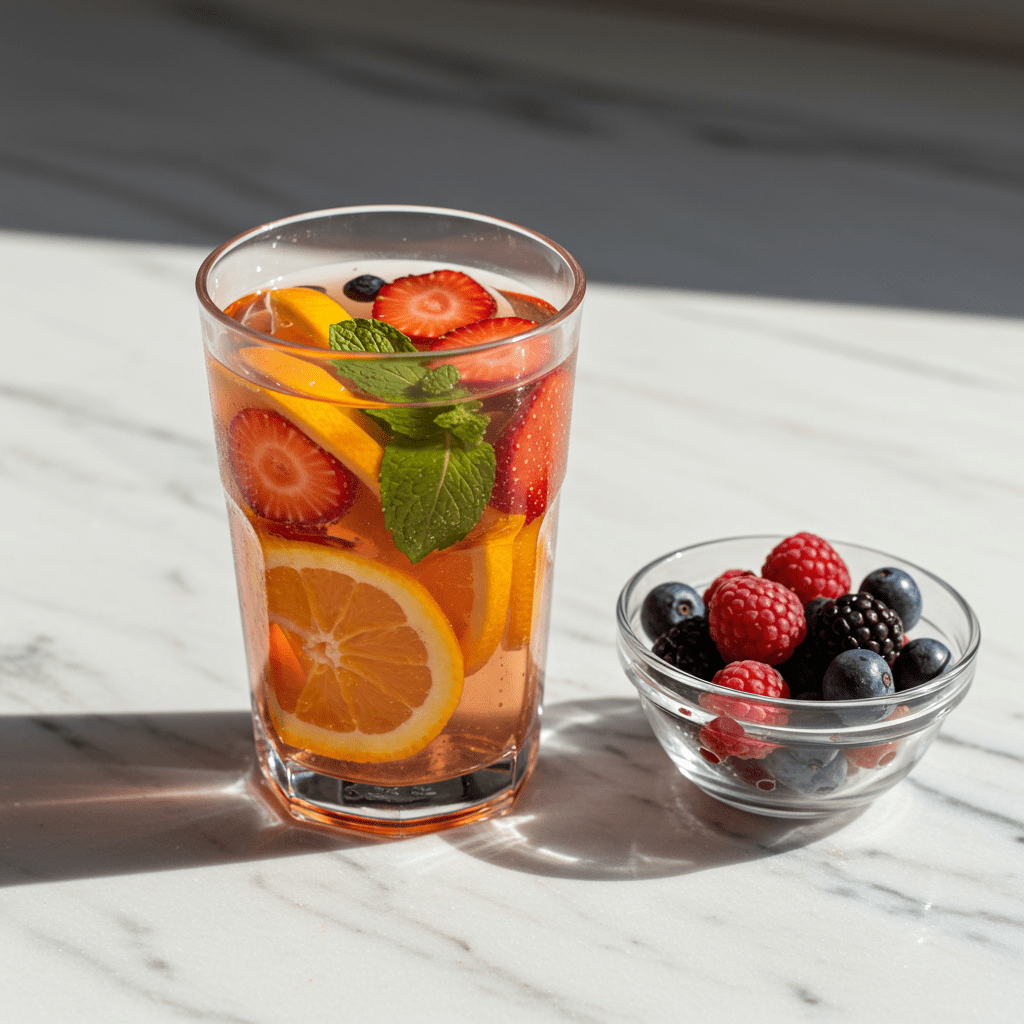
Instead of relying on a processed, sweetened beverage for hydration and nutrients, why not create your own delicious and truly healthy drinks? You can get superior flavor, more nutrients, and zero added sugar with a little creativity.
- Infused Water: This is the easiest and most effective alternative. Simply add slices of citrus fruits (lemon, lime, orange), berries, cucumber, or herbs like mint to a pitcher of cold water. Let it sit for a few hours to absorb the natural flavors. It’s refreshing, beautiful, and virtually calorie-free.
- Herbal Tea: Iced or hot, herbal teas like peppermint, chamomile, or hibiscus offer unique flavors and potential health benefits without any sugar or calories. A pitcher of cold-brewed hibiscus tea is a vibrant, tart, and incredibly refreshing drink.
- A Splash of 100% Juice: If you need more flavor, add a small splash of 100% fruit juice (like cranberry or pomegranate) to a large glass of plain sparkling water. This gives you a bubbly, flavorful drink with far less sugar than a commercial beverage.
Conclusion
So, what’s my final verdict on Vitaminwater as a dietitian? While it can be a step up from soda or other high-sugar drinks, it’s not the health beverage it’s marketed to be.
The high sugar content in the original versions is a significant drawback, and the added vitamins are of questionable value for the average person who eats a balanced diet. Think of Vitaminwater as an occasional treat or a transitional drink if you’re weaning yourself off sugary sodas, not as a daily source of hydration or nutrition.
The best choice for your health and wallet will always be water. For flavor and nutrients, turning to whole foods like fruits and vegetables is a far more effective and beneficial strategy. If you enjoy these kinds of dietitian-led product reviews, check out our breakdown of whether Dave’s Killer Bread is actually good for you.
